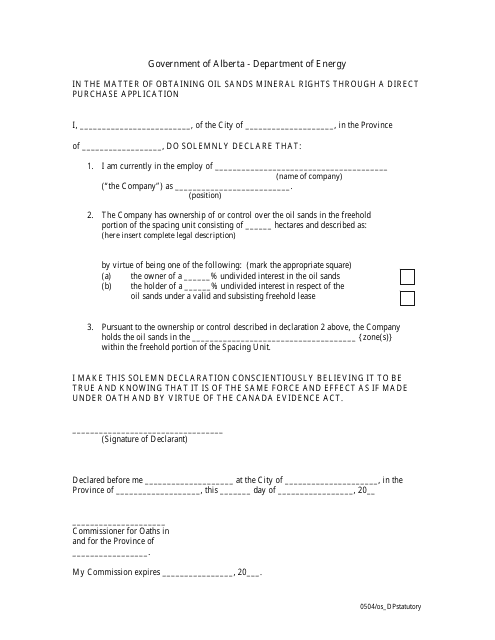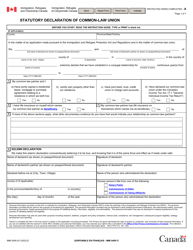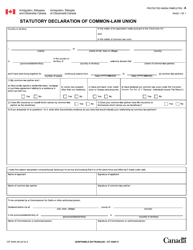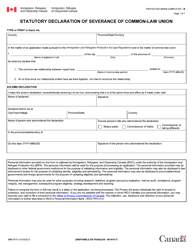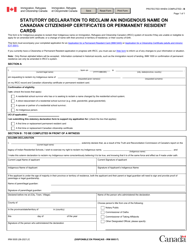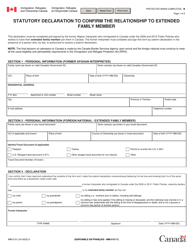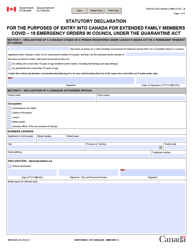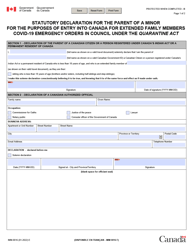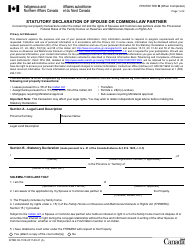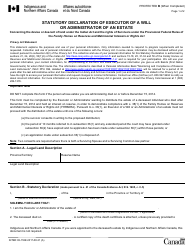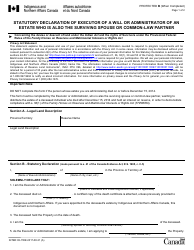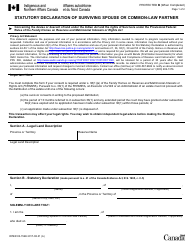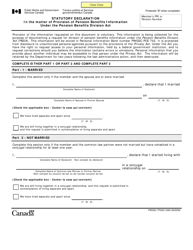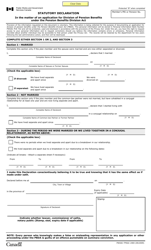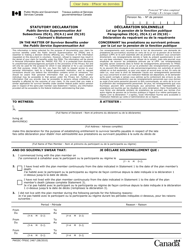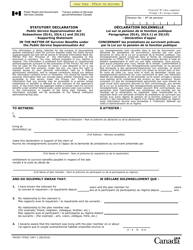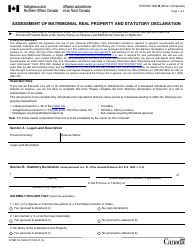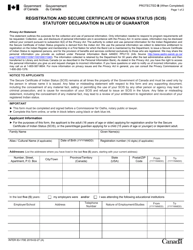Statutory Declaration - Alberta, Canada
A Statutory Declaration in Alberta, Canada is a legal document used to declare or affirm the truthfulness of certain information, such as proof of identity, proof of residence, or proof of loss or damage. It is often used in various legal or administrative matters as a way to provide a sworn statement under penalty of perjury.
In Alberta, Canada, the statutory declaration can be filed by any individual who needs to make a sworn statement on a matter of legal importance.
FAQ
Q: What is a statutory declaration?
A: A statutory declaration is a written statement that is sworn or declared to be true by the person making it.
Q: Why is a statutory declaration used?
A: A statutory declaration is used to confirm facts or statements when there is no other evidence available.
Q: When would I need to use a statutory declaration?
A: You may need to use a statutory declaration for various purposes, such as providing sworn statements for legal matters or confirming information for government applications.
Q: How do I make a statutory declaration in Alberta, Canada?
A: To make a statutory declaration in Alberta, you must complete a statutory declaration form and have it witnessed by a commissioner for oaths or a notary public.
Q: What information do I need to include in a statutory declaration?
A: A statutory declaration should include your full legal name, date of birth, address, and a statement of the facts or information you are confirming.
Q: Is a statutory declaration legally binding?
A: Yes, a statutory declaration is a legally binding document, and making a false statement in a statutory declaration is considered a criminal offense.
Q: Can I use a statutory declaration in other provinces or countries?
A: While statutory declaration forms may vary between jurisdictions, they are generally accepted across Canada and in many other countries. However, it is always best to check the specific requirements of the jurisdiction in which you intend to use the statutory declaration.
Q: Can I change or correct a statutory declaration once it has been made?
A: Generally, once a statutory declaration has been made, it cannot be changed or corrected. If you need to update or correct the information, you may need to make a new statutory declaration.
Q: Do I need a lawyer to make a statutory declaration?
A: No, you do not need a lawyer to make a statutory declaration. However, if you require legal advice or are unsure about the process, it is recommended to consult with a lawyer.
Q: Are there any fees associated with making a statutory declaration?
A: There may be fees associated with making a statutory declaration, such as witnessing fees charged by commissioners for oaths or notary publics. The specific fees can vary.
Q: How long is a statutory declaration valid?
A: The validity of a statutory declaration can vary depending on the purpose for which it is made. It is best to check the specific requirements of the organization or authority requesting the statutory declaration.
